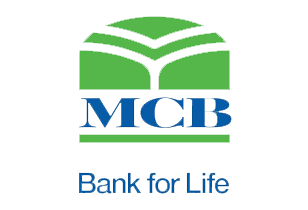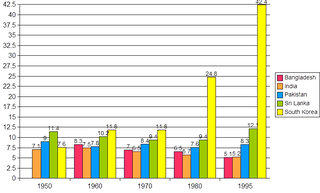
Lahore is the second largest city in Pakistan after Karachi and 26th largest in the world, with a population of over 13 million. It is situated in the north-east of the country with River Ravi flowing north-west of the city. It is the capital of the province of Punjab, where it is the largest city. Lahore is one of Pakistan's major industrial and economic hubs. It has been the historic capital and cultural centre of the wider Punjab region, and is one of Pakistan's most socially liberal, progressive, and cosmopolitan cities.

Lahore Junction Railway Station, is the main railway station in Lahore, Pakistan. Construction commenced shortly after the 1857 War of Independence against British rule, and so was built in the style of a medieval castle with thick walls, turrets, and holes to direct gun and cannon fire for defence of the structure.

Pakistan Television Corporation is the Pakistani state-owned broadcaster. Pakistan entered the television broadcasting age in 1964, with a pilot television station established at Lahore.

Batala is the eighth largest city in the state of Punjab, India in terms of population after Ludhiana, Amritsar, Jalandhar, Patiala, Bathinda, Mohali and Hoshiarpur. Batala ranks as the second-oldest city after Bathinda. It is a municipal corporation in Gurdaspur district in the Majha region of the state of Punjab, India. It is located about 32 km from Gurdaspur, the headquarters of the district. It is also a Police District. Batala holds the status of the most populated town of the district with 31% of the total population of district. It is the biggest industrial town in the district. Batala is the centre of the Majha region of Punjab.

The Pakistan Steel Mills Corporation, colloquially referred to as Pak Steels, is a Pakistan State-owned company that produced long-rolled steel and heavy metal products in the country.

Bank Al Habib Limited is a Pakistani commercial bank owned by the Dawood Habib Family and is based in Karachi, Pakistan. It is one of the largest bank in Pakistan.

MCB Bank Limited is a Pakistani multinational commercial bank which is based in Lahore, Punjab, Pakistan. The majority of shares are owned by Pakistani conglomerate Nishat Group and Malaysian bank Maybank. The bank has a network of 1,600 branches in Pakistan.
The Saigol Group, also known as Kohinoor Group, is a Pakistani conglomerate company which is based in Lahore, Pakistan. The company was founded by Amin Saigol in the 1930s with a small shop that eventually developed into the Kohinoor Rubber Works.
The Corporate sector of Pakistan is an elite business sector expanded in financial cities of Pakistan, and a policy measure programme in the economic period of Pakistan. This programme is also regarded as "Pakistan Inc.", which is a common term used by the mass-media of Pakistan to refer to the corporate sector of the nation. The current policy measure programme is the Companies Ordinance 2016 that legally allows a variety of formations in the mixed economy of Pakistan.
Shahzada Alam Monnoo was a Pakistani industrialist and politician. He served in the Federal cabinet as Minister of Commerce and Textile Industry, Privatization and Investment between 15 November 2007 and 25 March 2008. He died on 18 November 2014.
Syed Babar Ali OBE is a Pakistani businessman, philanthropist and former caretaker Finance Minister of Pakistan. He is the founder of Packages Limited, Milkpak Limited and Lahore University of Management Sciences. Syed Babar Ali School of Science and Engineering is named after him.

There are several modes of transport available in Lahore.
The Ittefaq Group integrated steel producer started by seven brothers in 1951, with huge operations in Punjab. It was sold to Al-Rehmat Group of Companies in 2004.

Braithwaite & Co. Limited is an Indian public sector undertaking which is engaged in the manufacture of railway wagons, cranes and other engineering services. It is wholly owned by the Government of India and under the administrative control of the Ministry of Railways. Its headquarters are located at Kolkata, West Bengal.

Pace Pakistan is a Pakistani shopping malls operator based in Lahore, Punjab, Pakistan.

The Nationalisation process in Pakistan was a policy measure programme in the economic history of Pakistan, made Pakistan's industrialization worst and lifted the trust of businessmen and investors. It first introduced, promulgated and implemented by Zulfikar Ali Bhutto and Pakistan Peoples Party to lay the foundation of socialist economics reforms to improve the growth of national economy of Pakistan. Since the 1950s, the country had undergone a speedy industrialisation and became an industrial paradise in Asia. But, as time progressed, the labour trade unions and labour-working class had increasingly strained relations with the industrial business oligarch class, having neglected to improve working conditions and failing to provide a healthy and safe environment for the workers in these industrial industries.
Naya Nazimabad is a housing project that is being developed, built around the Manghopir Lake. Naya Nazimabad Cricket Stadium is the home ground for the Karachi Kings, a PSL franchise owned by ARY's CEO Salman Iqbal.
Industry in Karachi are the various industries that are located in Karachi, Pakistan. The commerce and industry in Karachi represents major economic activities in Pakistan. Pakistan ranks 40 among the countries of the world in nominal GDP, and number 55 in the world in factory output. Pakistan's industrial sector accounts for about 24% of GDP.
Muhammad Arif Habib is a Pakistani business magnate and stock market trader who is the founder of the Arif Habib Group. As of 2012, Arif Habib Group had 11,000 employees and annual revenue of Rs. 100 billion. He also serves as member of Boards of Governors of Karachi School of Business and Leadership (KSBL).











